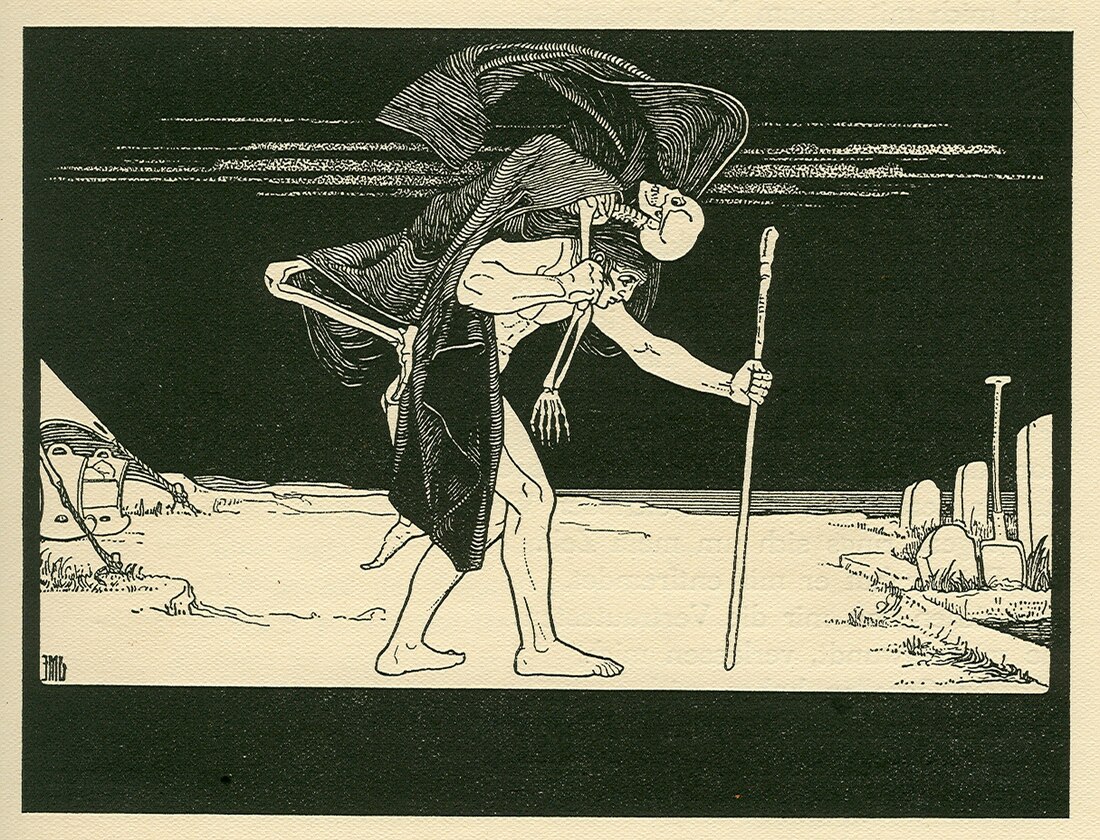Dybbuk
Malicious possessing spirit in Jewish religion From Wikipedia, the free encyclopedia
In Jewish mythology, a dybbuk (/ˈdɪbək/; Yiddish: דיבוק, from the Hebrew verb דָּבַק dāḇaq meaning 'adhere' or 'cling') is a malicious possessing spirit believed to be the dislocated soul of a dead person.[1] It supposedly leaves the host body once it has accomplished its goal, sometimes after being exorcised.[2][3][4]

Etymology
Dybbuk comes from the Hebrew word דִּיבּוּק dibūq, meaning 'a case of attachment', which is a nominal form derived from the verb דָּבַק dāḇaq 'to adhere' or 'cling'.[5]
History
Summarize
Perspective
The term first appears in a number of 16th-century writings,[2][6] though it was ignored by mainstream scholarship until S. An-sky's 1920 play The Dybbuk popularised the concept in literary circles.[6] Earlier accounts of possession (such as that given by Josephus) were of demonic possession rather than that of ghosts.[7] These accounts advocated orthodoxy among the populace[2] as a preventative measure. Michał Waszyński's 1937 film The Dybbuk, based on the Yiddish play by S. An-sky, is considered one of the classics of Yiddish filmmaking.[8]
Rabbi Yoel Teitelbaum, the Satmar rebbe (1887–1979), is reported to have supposedly advised an individual said to be possessed to consult a psychiatrist.[7]
Traditionally, dybbuks tended to be male spirits. According to Hayyim Vital, women could not become dybbuks because their souls did not participate in gilgul.[9] Sometimes these spirits were said to possess women on the eve of their weddings, typically in a sexual fashion by entering the women through their vaginas, which is seen in An-sky's play.[10] However, men and boys could be possessed as well.[9]
In psychological literature, the dybbuk has been described as a hysterical syndrome.[11]
Expulsion
In traditional Jewish communities, the concept of the dybbuk served as a socially acceptable way of expressing unacceptable urges, including sexual ones.[12] Within Jewish mysticism and folklore, particularly in Kabbalistic traditions, protective practices were also used to ward off these malevolent spirits. One such practice involves affixing a mezuzah—a piece of parchment inscribed with specific Torah verses—to the doorposts of a home. While the mezuzah primarily serves as a reminder of faith and adherence to God's commandments, it is also viewed as a protective amulet against harmful spirits, including dybbuks. The Zohar, a foundational Kabbalistic text, suggests that a properly affixed mezuzah can prevent such entities from entering a home.[13] Additionally, Jewish folklore includes accounts where neglected or improperly maintained mezuzot were believed to make homes susceptible to dybbuk possession.[14] These perspectives emphasize the mezuzah's dual role in Jewish life: as both a symbol of faith and a spiritual safeguard.
See also
References
Further reading
External links
Wikiwand - on
Seamless Wikipedia browsing. On steroids.
